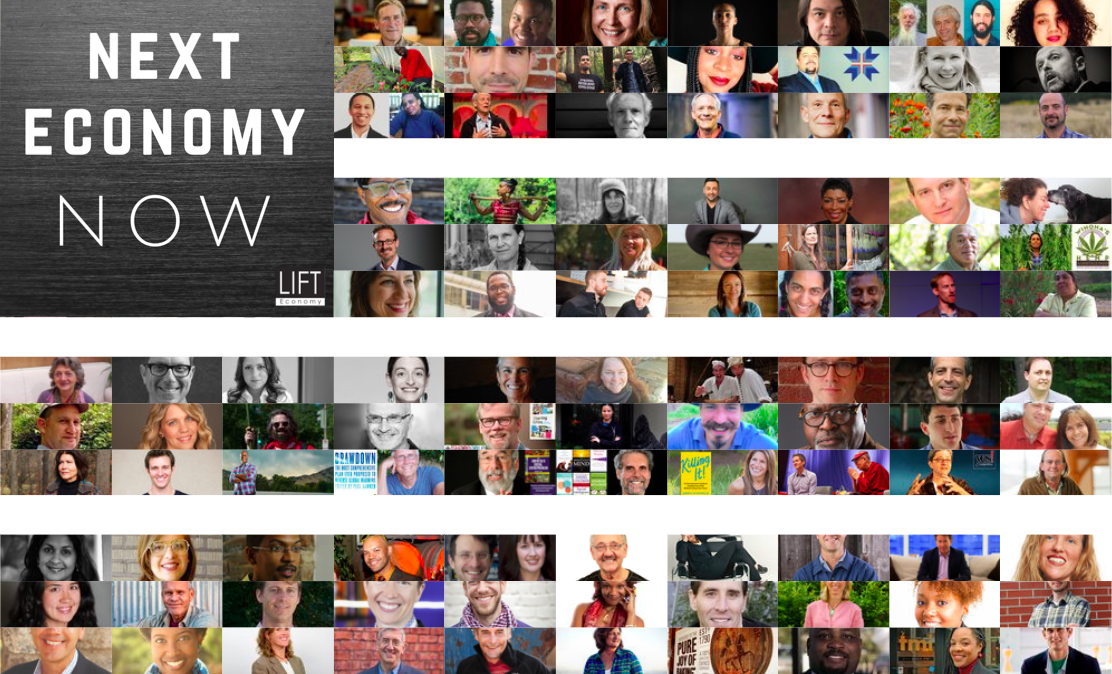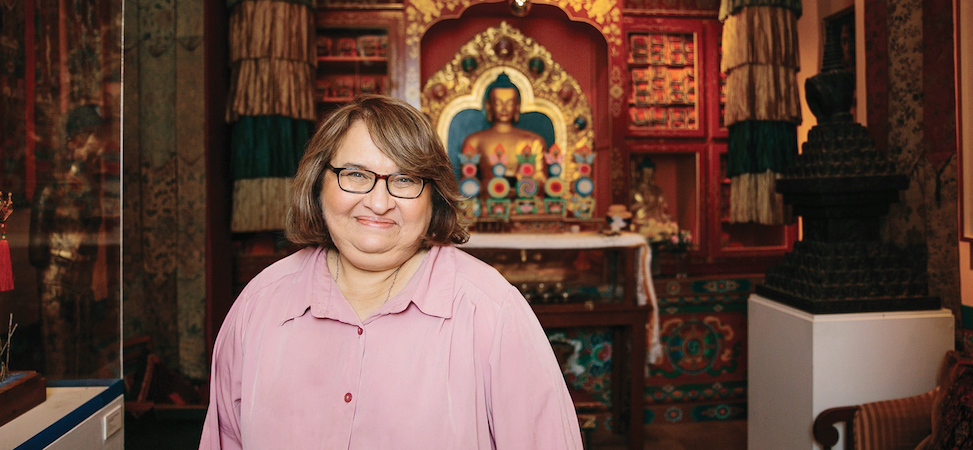Subscribe to Next Economy Now on Apple Podcasts, Spotify, Pandora, Google Podcasts, YouTube, or wherever you find your podcasts.
Doing the urgent work of dismantling white supremacy and capitalism is an overwhelming task that cannot be achieved alone. But how do we find healing and connection within our communities and move forward when there is so much hurt to be overcome? Joining us today to help unpack this nuanced and urgent topic is Roxy Manning, Ph.D. — an Antiracist, Nonviolent communication (NVC) speaker, consultant, and psychologist.
Roxy is the author of two highly relevant books, The Antiracist Heart: A Self-Compassion and Activism Handbook and How to Have Antiracist Conversations: Embracing Our Full Humanity to Challenge White Supremacy. Drawing on over twenty years of experience in nonviolent communication (NVC), she has held training and workshops around the world, engaging in the meaningful work of healing relationships within global majority communities.
In today’s conversation we delve into the nuances of nonviolent communication and learn how practicing compassion, both for ourselves and others, can combat the harmful teachings of white supremacy and capitalism. Roxy shares the powerful lessons she’s learned from her work, the challenges she continues to face, and the experiences that continue to give her hope. To hear the full scope of everything we cover today, tune in for this profound and important conversation.
---
Key Points From This Episode:
• Introducing Antiracist, Nonviolent communication speaker, consultant, and psychologist, Roxy Manning. [0:00:27]
• An overview of what nonviolent communication (NVC) means in different contexts. [0:04:09]
• Unpacking why the global majority community is not a monolith, and the many ways people’s needs can differ from one another. [0:07:14]
• Unknowingly internalizing insidious white supremacist beliefs; how it can pit BIPOC folks against one another; the challenge of learning how to recognize and change this. [0:08:22]
• Learning to have compassion for yourself and others; unpacking why capitalism and white supremacy harms all of us. [0:15:57]
• Roxy’s self-compassion practice and how this has helped her in life and at work. [0:24:00]
• How acknowledging our privilege can help us make connections outside of our communities. [0:27:19]
• Highlights from the work Roxy has done healing relationships within global majority communities. [0:32:09]
• Roxy’s approach to handling microaggressions within and outside of global majority communities. [0:35:17]
• What gives Roxy hope as she continues to do the hard work of anti-racism and NVC. [0:37:06]
---
Quotes:
“We're all in this together. We're all suffering from what capitalism and white supremacy has done to us.” — @roxymanningphd [0:17:18]
“Some people are more impacted, in many different ways, by the systems that we've inherited, than others. Because those systems were designed to benefit some people over others.” — @roxymanningphd [0:19:19]
“If I call you out, no matter how intensely [or] harshly I do it, I'm actually telling you, there's still a chance for connection. Because when I don't care, when I have lost all trust, or faith in you, I walk away.” — @roxymanningphd [0:27:26]
“The more that we acknowledge our own privilege and work on it, the more we can actually have the kinds of connections outside of our communities that we want.” — @roxymanningphd [0:29:39]
“If we are always punishing the other when they do something to us, we're reinforcing that message that we have to punish ourselves in order to motivate our own change. That's problematic.” — @roxymanningphd [0:32:00]
---
Links Mentioned in Today’s Episode:
Roxy Manning: https://roxannemanning.com/
Antiracist Conversations: https://antiracistconversations.com/
Roxy Manning on X: https://twitter.com/roxymanningphd
Roxy Manning on LinkedIn: https://www.linkedin.com/in/roxymanningphd/
Roxy Manning Books: https://roxannemanning.com/books/
The Antiracist Heart: A Self-Compassion and Activism Handbook: https://www.powells.com/book/antiracist-heart-a-self-compassion-activism-handbook-9781523003785
How to Have Antiracist Conversations: Embracing Our Full Humanity to Challenge White Supremacy: https://www.powells.com/book/how-to-have-antiracist-conversations-embracing-our-full-humanity-to-challenge-white-supremacy-9781523003730
---
Stay Connected To Next Economy News with our Newsletter!
Interested in receiving the latest news from the Next Economy? Sign up for our newsletter and receive monthly tips, advice, and resources from our team and partners: https://lifteconomy.com/newsletter
---
Communicate Authentically and Courageously: Culture Offerings Workshop Series
We’re excited to announce that Phoenix’s Culture Offerings spring workshops are now open! These workshops are designed to transform the way we communicate in our workplaces by focusing on skills like collaboration, conflict resolution, and empathy. We'll cover topics such as how to have difficult conversations with confidence and creativity, how to process challenging emotions, and how to embody our values when advocating for justice.
Registration for the spring Culture Offerings series is now open — the four workshops include:
Surfing Workplace Waves 🌊: learn how to surf the ups and downs of your workplace with more ease and confidence.
Offering Feedback In The Workplace 💬: this two-part workshop utilizes NVC tools to offer feedback in a way that is authentic, honest and helpful.
Staying Grounded Under Fire 🔥: learn how to receive challenging interactions with more ease and playfulness utilizing NVC tools and technique.
How To Have Conversations About Racial Justice 📣: navigate complex racial justice conversations with skills that foster connection in high stakes situations in this two-part workshop.
We believe that these trainings are essential for anyone looking to transition to the Next Economy. And, as a special offer for our valued community, we're providing a 10% discount on individual workshops or the entire series with the code LIFTCULT10OFF.
---
Show Notes + Other Links
For detailed show notes and interviews with past guests, please visit https://lifteconomy.com/podcast.
If you enjoy Next Economy Now, please consider leaving us a review on Apple Podcasts or Spotify — it really helps folks interested in Next Economy work discover our show.
Stay Connected With Us On Social:
X: https://twitter.com/LIFTEconomy
Instagram: https://instagram.com/lifteconomy/
Facebook: https://facebook.com/LIFTEconomy/
YouTube: https://youtube.com/c/Lifteconomy
Music by Chris Zabriskie:https://chriszabriskie.com/







